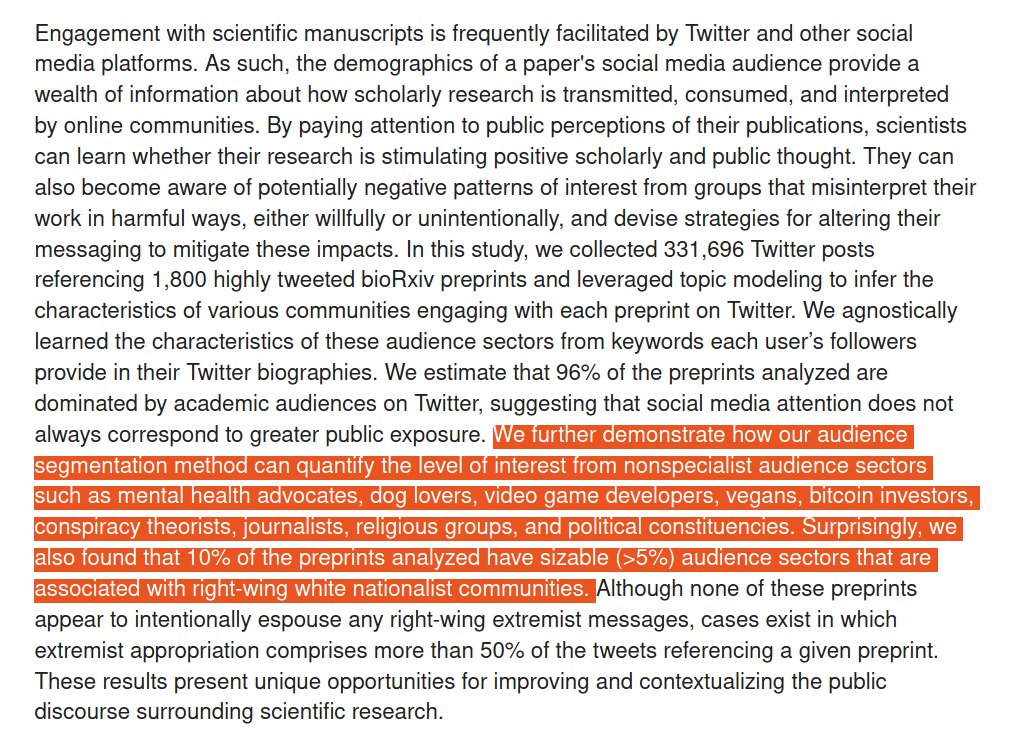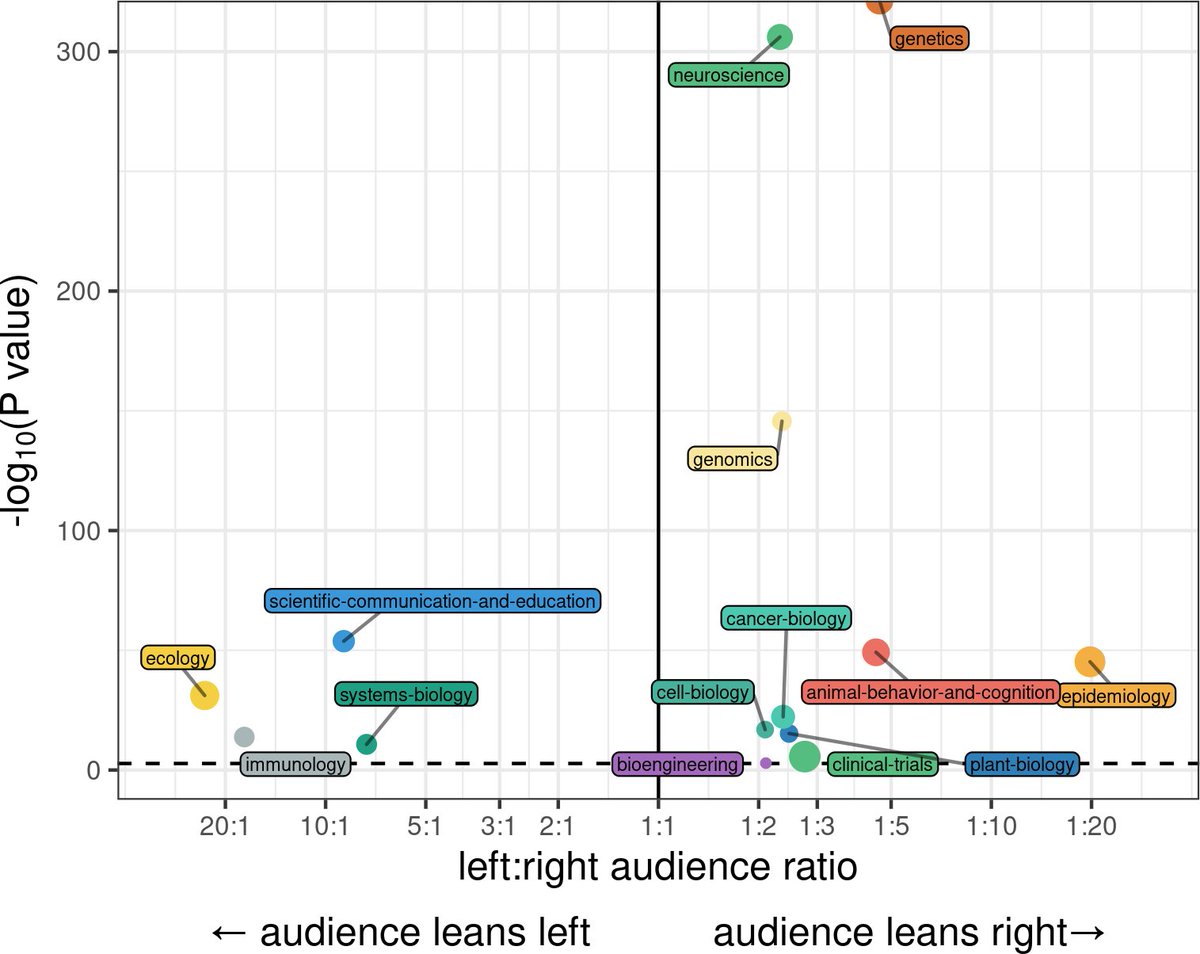
Who reads preprints? Academics and...er... white nationalists?? journals.plos.org/plosbiology/ar… 

"a framework for segmenting a scholarly article’s audience on Twitter...into granular, informative categories inferred through probabilistic topic modeling of metadata collected from each user’s network of followers"
(could be useful @nikaletras ?)
(could be useful @nikaletras ?)
Interactive data explorer for this paper carjed.github.io/audiences/
Big up "plant biology" for having a solid 0% pre-print audience with "white nationalist follower homophily"
Genetics leading the dismal pack, perhaps predictably, with animal behaviour and cognition second
Genetics leading the dismal pack, perhaps predictably, with animal behaviour and cognition second
(probably small number of preprints analysed for animal behaviour, but neuroscience also looks solid for white nationalism)
There's a fascinating story in here which I am sure I haven't fully understood
"These preprints often involved research pertaining to human population history & the genetic and neurological architecture & evolution of sociobehavioral traits, suggesting such research is seen by these audience sectors as especially relevant to right-wing political ideologies"
So, on what hand, we have a story about white nationalist twitter recruiting preprints as support for their ideological position
But more generally this is a lens for looking at how scholarly outputs are taken up by special interest communities ("...mental health advocates, dog lovers, video game developers, vegans, bitcoin investors, conspiracy theorists, journalists, religious groups...")
Authors are on twitter (naturally) @JedMSP @Kelley__Harris
Explainer thread on paper from lead author
https://twitter.com/JedMSP/status/1308522483692138496
• • •
Missing some Tweet in this thread? You can try to
force a refresh






